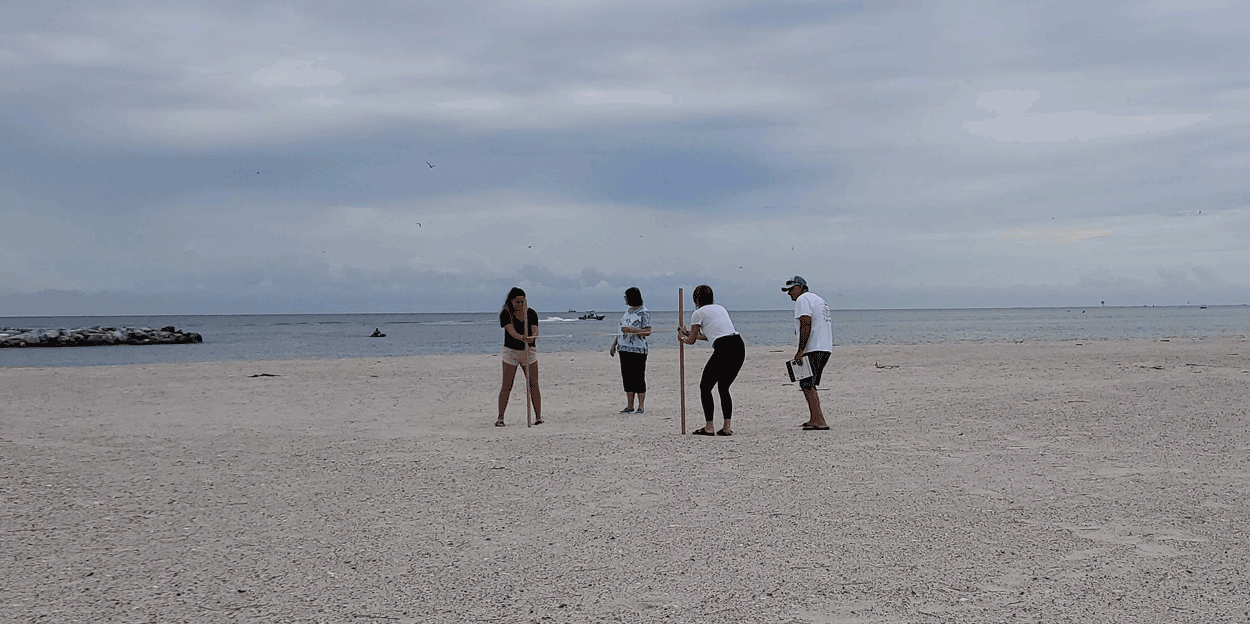
University Programs summer faculty Dr. Emily Elliott of the University of Alabama had the opportunity to connect her marine geology students with Dauphin Island’s citizen scientists to see how what they learned in class could be applied to research.
Dauphin Island’s citizen scientists have been monitoring the shape of Dauphin Island for the last several years under the direction of University of New Orleans (UNO) professor Dr. Mark Kulp and Dinah Maygarden, the Director of UNO’s Coastal Education Program.
Dr. Kulp received funding for the project in 2016 from the Gulf Research Program of the National Academies of Sciences, Engineering, and Medicine. The project was intended to jump-start innovative approaches to challenges in regions with offshore oil and gas operations.
Through the ongoing education efforts of both Kulp and Maygarden, each month the citizen scientists collect shoreline data including beach elevation surveys. The data collected paints a picture of how an island evolves over time.
“This project is so critical,” Dr. Elliott said. “Dauphin Island is a benchmark barrier for all of the islands down the system. How profiles change on Dauphin Island impact the sediment structure for all the islands down the chain - Petit Bois, Deer, Ship and Cat Island.”
Dr. Elliott contacted Kulp to see about her students taking part in the project during their class time. Both Maygarden and citizen scientists walked Elliott and the students through the process of collecting data, and then the students took what they learned to areas of Grand Isle, Louisiana. The southern coastline of Louisiana is of interest to Dr. Kulp’s project but didn’t receive the same citizen scientist support.
“Understanding how the beach morphology changes along the barrier islands can give us an idea of lots of changes along the coastal zone, including how pollutants, like tarballs, are transported along the coast and a better idea of sediment transport in the system,” Dr. Elliott explained.
The students will wrap up their class with a final presentation of what they learned throughout the four weeks on Friday, June 28, with one of the lead citizen scientists serving as a guest judge due to the overwhelming impact this community member made on the students throughout this class.
You can learn more about the Dauphin Island project by clicking here.